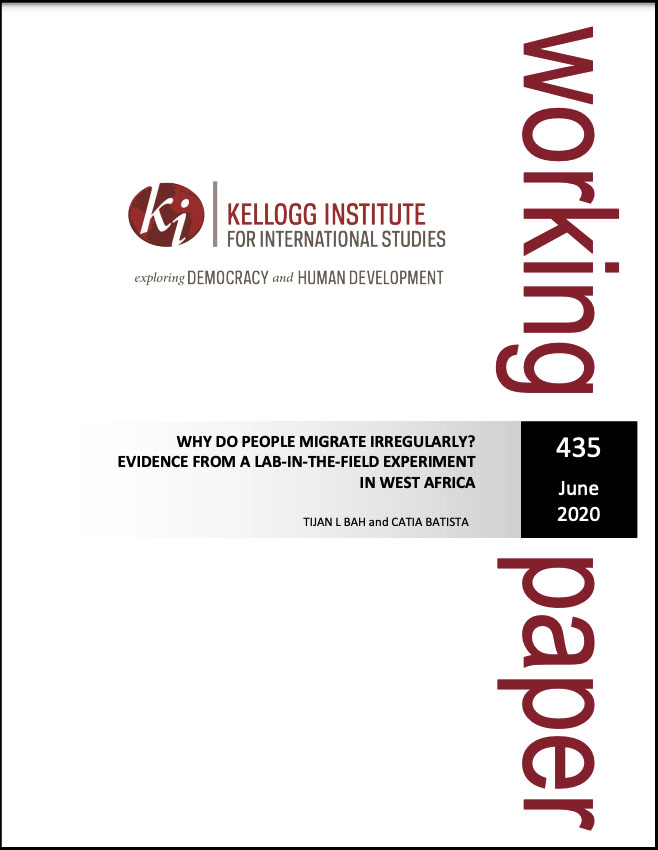Why Do People Migrate Irregularly? Evidence from a Lab-in-the-Field Experiment in West Africa
Authors: Tijan L. Bah, Catia Batista
Publication info: Kellogg Institute, June 2020
Full text: Read this paper at kellogg.nd.edu
Abstract
Irregular migration to Europe by sea, though risky, remains one of the most popular migration options for many sub-Saharan Africans. This study examines the determinants of irregular migration from West Africa to Europe. We implemented an incentivized lab-in-thefield experiment in rural Gambia, the country with the region’s highest rate of irregular migration to Europe. Male youths aged 15 to 25 were given hypothetical scenarios regarding the probability of dying en route to Europe and of gaining legal residence status after successful arrival. According to the data we collected, potential migrants overestimate both the risk of dying en route to Europe and the probability of obtaining legal residency status. In this context, our experimental results show that providing potential migrants with official numbers on the probability of getting a legal residence permit decreases their likelihood of migration by 2.88 percentage points (pp), while information on the death risk of migrating increases their likelihood of migration by 2.29 pp—although the official numbers should be regarded as a lower bound to actual mortality. Follow-up data collected one year after the experiment show that the migration decisions reported in the lab experiment correlate well with actual migration decisions and intentions. Overall, our study indicates that the migration decisions of potential migrants are likely to respond to relevant information.
Recommended citation
Bah, Tijan L., and Catia Batista. Why Do People Migrate Irregularly? Evidence from a Lab-in-the-Field
Experiment in West Africa. Kellogg Working Paper 435. Notre Dame, IN: Kellogg Institute for
International Studies, 2020.
